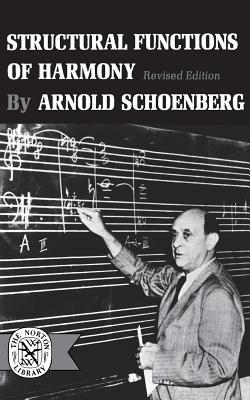
Schoenberg's argument is supported by music examples, which range from entire development sections of classical symphonies to analyses of the experimental harmonic progressions of Strauss, Debussy, Reger, and Schoenberg's own early music. The final chapter, "Apollonian Evaluation of a Dionysian Epoch," discusses the music of our time, with particular reference to the possibility of new methods of harmonic analysis.
Structural Functions of Harmony is a standard work on its subject and provides an invaluable key to the development of musical structure during the last two hundred and fifty years. This new edition, with corrections, a new preface, and an index of subject headings, has been prepared under the editorial supervision of Leonard Stein.
Schoenberg's argument is supported by music examples, which range from entire development sections of classical symphonies to analyses of the experimental harmonic progressions of Strauss, Debussy, Reger, and Schoenberg's own early music. The final chapter, "Apollonian Evaluation of a Dionysian Epoch," discusses the music of our time, with particular reference to the possibility of new methods of harmonic analysis.
Structural Functions of Harmony is a standard work on its subject and provides an invaluable key to the development of musical structure during the last two hundred and fifty years. This new edition, with corrections, a new preface, and an index of subject headings, has been prepared under the editorial supervision of Leonard Stein.
Paperback
$21.95